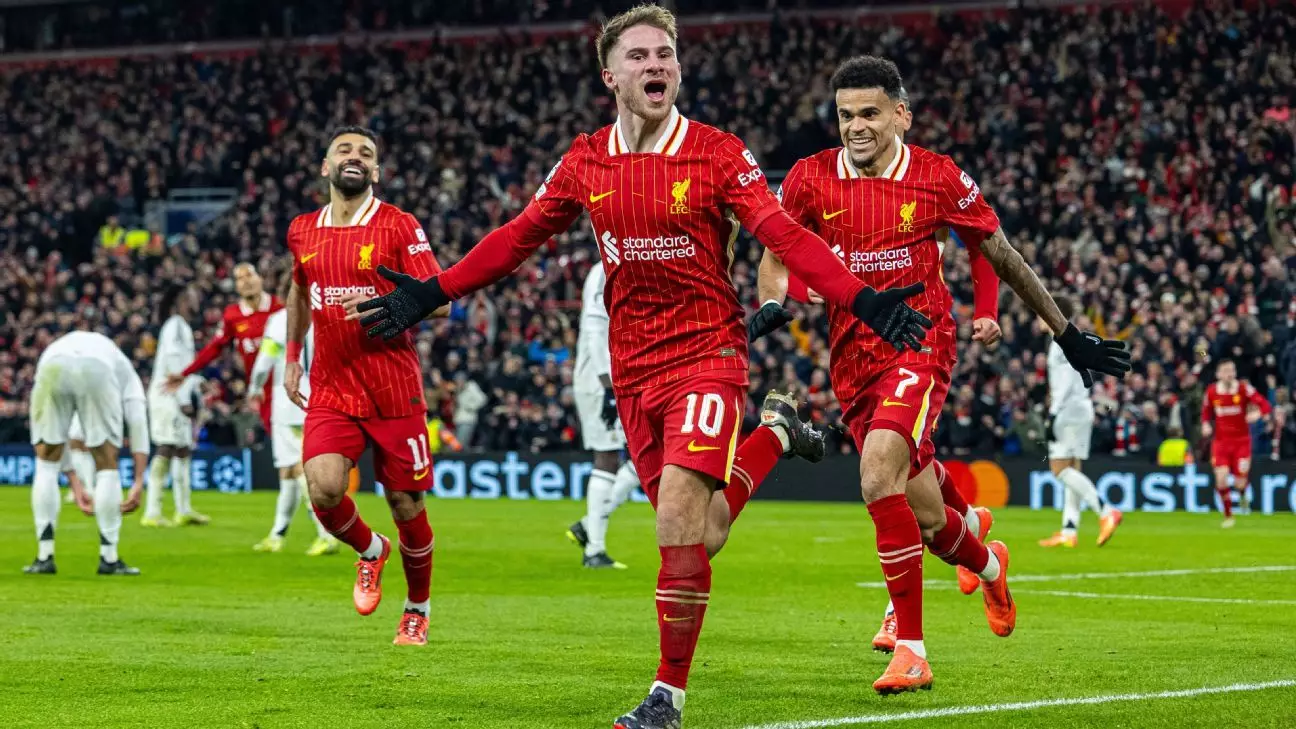The UEFA Champions League (UCL) serves as the premier battlefield for European football clubs, showcasing the sport’s finest talents. However, the competition’s structure is continually evolving, most notably in how leagues are rewarded with extra qualification places. The latest twist in the tale is the introduction of an additional UCL spot based on collective performance across all European competitions—providing a new lens through which to analyze domestic leagues’ success.
With each passing season, the significance of performance coefficients has become a pivotal aspect in determining a league’s ranking in Europe. The system provides a mathematical framework to evaluate the strength of leagues, awarding points based on match outcomes in the UCL, UEFA Europa League (UEL), and UEFA Conference League (UCoL). A club’s victory earns two points, while a draw garners one. The net results from all of a country’s clubs are averaged to determine their coefficient score, which plays a crucial role in the granting of the additional UCL spot.
Historically, this strategy has favored leagues with multiple clubs in the UCL; Germany and Italy enjoyed the fruit of their successes last season. Borussia Dortmund and Bologna were rewarded for their efforts, illustrating how clubs from these nations outperformed their contemporaries in England, France, and Spain. However, this advantage is not a given. An inconsistent performance, especially from top clubs, could jeopardize a league’s standing in the coefficient ranking.
As the football seasons unfold, several key dates loom large, including January 23rd and 29th for the conclusion of the UEL and UCL group stages. These points in time will offer deeper insights into which leagues could emerge with that coveted extra Champions League spot. With critical performances expected from clubs, every win counts significantly toward a nation’s distribution of points.
For instance, England currently displays a striking lead in the coefficients. Chelsea’s exemplary form—winning all six matches—underscores the importance of consistency at the top level, pushing the Premier League further ahead in the race for coefficients. Likewise, clubs from Portugal and Belgium are proving their mettle as they strive for a more considerable share of European glory. Conversely, if the established top leagues falter in the knockout stages, this may create opportunities for underrepresented leagues to ascend the rankings, as demonstrated by the Dutch league’s surprising rise in 2022.
In tandem with performance metrics, the restructuring of bonus points for club participation in UEFA competitions has further heightened the stakes. The rise in available points—wherein clubs can now receive up to 18 points merely for competing in the UCL—has redefined how leagues approach European tournaments. This shift could disproportionately benefit leagues with a larger representation in the UCL, reiterating the notion that quantity may triumph over quality in terms of coefficient accumulation.
Notably, the potential fallout of a club from a top league, such as England, securing a spot in the UCL final while their domestic counterparts struggle, heightens the tension surrounding league standings. The intricacies of the system mean that underperforming domestic teams could inadvertently undermine their league’s overall coefficient, impacting future international opportunities for all.
The emergence of new contenders and consistent performances will ultimately determine which leagues gain that additional spot in the UCL. With domestic fortitude serving as a foundation for success in European competitions, each match in the knockout rounds becomes a critical pivot point.
As history shows, reaching the knockout stages is not merely a personal achievement for clubs but a collective triumph that resonates through their leagues. The contrasting trajectories of Italy and Germany illustrate how swiftly fortune can change. Continued success would not only enhance their own performances but solidify their status in European hierarchy, opening doors for the next generation of footballing talent.
The road to UEFA’s Champions League is riddled with challenges and intricacies that require adaptability and resilience. Whether an underdog team can emerge to clinch an additional spot, or established giants maintain their supremacy, remains an open question. But for leagues with aspirations of growth and glory, the stakes could not be higher as the battle lines for European prestige continue to be drawn. Each result, each point, and each match brings both promise and peril, ensuring that the quest for European football’s highest honors remains fiercely competitive.

